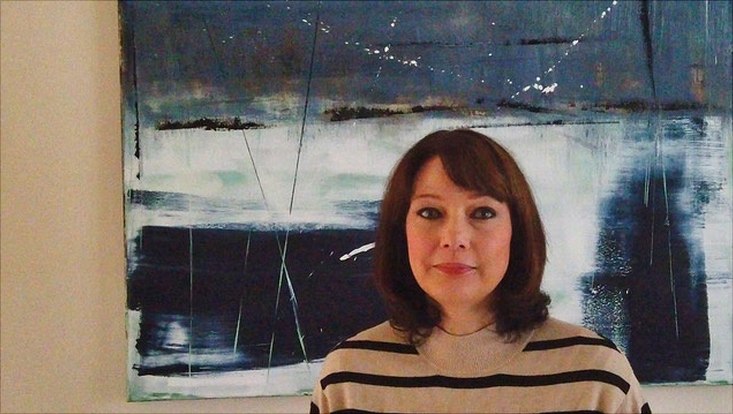Prof. Dr. Claudia Nitschke

Curriculum
Claudia Nitschke studied Modern German Literature and History at the Eberhard Karls University of Tübingen, earning her M.A. in 1998. She completed her PhD there in 2003 with a dissertation on 'War and Utopia in L. Achim von Arnim’s Work'. After working as a Lecturer at the University of Tübingen, she served as Praelector at Lincoln College and Stipendiary Lecturer at Somerville College, University of Oxford. In 2011, she completed her habilitation at Tübingen with a thesis on 'Conceptions of Paternal Sovereignty in German Literature (1751–1921)'. That same year, she joined Durham University, where she has held a Chair in German Studies since 2016.
Her research interests span Environmental Humanities; literature and the law, with a focus on property theories and human rights; utopian theory and fiction; national identity and nationalism; concepts of sovereignty in literature and film; contemporary literature; and 18th- and 19th-century German literature, particularly Realism, Romanticism, the 'Age of Goethe', and the Enlightenment.
Publications (selection)
- (2020). Anerkennung und Kalkül. Literarische Gerechtigkeitsentwürfe im gesellschaftlichen Umbruch (1773-1819). Paderborn: Wilhelm Fink.
- (2012). Der öffentliche Vater. Konzeptionen paternaler Souveränität in der deutschen Literatur (1751-1921). Berlin: De Gruyter (Hermaea).
- (2014). 'Das natürliche System des Marktes. Lessings Nathan der Weise und Adam Smiths Wealth of Nations', in Gastlichkeit und Ökonomie. Wirtschaften im deutschen und englischen Drama des 18. Jahrhunderts, ed. by Nieberle, Sigrid and Nitschke, Claudia. Berlin: De Gruyter: pp. 177–202.
- (2021). ‘Metaphorical Contracts and Games: Goethe’s Götz von Berlichingen and Schiller’s Fiesco’, Law & Literature (open access).
- (2022). Settled and Unsettled Spaces: Property and Ecological Networks in Sophie von La Roche’s Erscheinungen am See Oneida. The Germanic Review: Literature, Culture, Theory, 97(2), pp. 134–152.
Research project: Metabolic Dynamics and Private Property in the Long Eighteenth Century: Locke’s Idea of Transformative Forces and Their Reception in German Literature
John Locke’s (1632–1704) justification for the concept of property in the 'Second Treatise of Government' was seminal in the seventeenth and eighteenth centuries and has since been extensively analyzed within the context of Empire, alongside its colonial ideologies and practices. However, it is crucial to recognize that his argument is also grounded in corporeal concepts and body metaphors, including references to metabolic processes, such as the irreversible appropriation of natural 'rescources' through ingestion.
According to Locke, legitimate acquisition occurs through a process of 'mixing': 'whatever he hath mixed his labour with, and joined to it something that is his own' becomes 'his' property. The transformative power associated with the body (and its extensions) thus plays a pivotal role in Locke’s rationale for property acquisition. Through this, he also emphasizes the dynamic interaction between individuals (and collectives) and the non-human natural world. Building on these key premises in Locke’s property theory, my project will explore how Locke’s groundbreaking justification of private property gained traction in eighteenth- and early nineteenth-century German literature: how readily were these justifications for ownership understood, accepted, applied and how were they adjusted or changed? Finally, how did Locke’s reflections on 'mixing' and metabolic appropriation influence the emerging 'ecological' understanding of nature towards the turn of the century?
Research results: Metabolic Dynamics and Private Property in the Long Eighteenth Century: Locke’s Idea of Transformative Forces and Their Reception in German Literature
My time at the CAS Imaginaria of Force allowed me to explore how Locke’s theories were received and reinterpreted in both the Robinsonades of the Enlightenment and literary texts on mining from the Romantic period. These later literary engagements with Locke’s ideas reflect a marked shift toward a more relational understanding of the environment. In the German context, Locke’s labour theory of property is particularly significant, as it is rooted in the notion of improvement – a concept that resonates strongly with Enlightenment ideals of progress, education, and Bildung. This connection helped sustain its relevance well into the Age of Goethe.
Property is conceived as a relational concept whereby nature is enhanced, shaped, and ‘improved’ through labour, in full accordance with the Enlightenment’s ideal of progress. Locke’s approach is adapted within these texts and re-emerges in a deeply moralized form: labour functions as a legitimate mode of appropriation only when it is primarily regarded as a moral obligation. Such justification depends on an appropriate engagement with the natural world, one guided by knowledge and ethical considerations. In Romantic literature, Locke’s notion of mixing undergoes a radical transformation. His strict subject-object dichotomy in property theory becomes untenable, as nature is no longer portrayed as a passive object to be controlled, but rather as an active, resistant agent that challenges claims of possession. Consequently, the boundaries between self and environment, human and nature, are in constant flux and require continual renegotiation. In E.T.A. Hoffmann’s ‘The Mines at Falun’, the metaphor of digestion is explicitly invoked, though with a striking inversion: the human figure confronts a larger entity that threatens to consume him. This reversal undermines the fundamental hierarchy upon which Locke’s justification of property is based. Within the Romantic context, this critique extends beyond a condemnation of capitalism to include a broader challenge to the extractivist exploitation of the environment, which is portrayed as deeply problematic.
